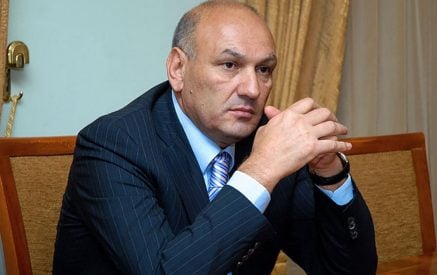His Excellency
Vahagn Khachsturyan President of the Republic of Armenia
Honourable Nikol Pashinyan Prime Minister of the Republic of Armenia
Honourable Vladimir Vardanyan Chairman of the Standing Committee on State
Read also
and Legal Affairs of the National Assembly of Republic of Armenia
Her Excellency Marija Pejcinovic Buric Secretary General of Council of Europe
His Excellency Didier Reynders EU Commissioner for Justice
Mr. Vassilis Maragos EU Commission Directorate –General for Neighbouring
and Enlargement Negotiations, Head of Unit
Association of Armenian Judges
Dear Madam, Dear Sirs,
The undersigned Board of European Association of Judges was informed by its member, the Judges’ Association of the Republic of Armenia, as well as by several reports in Armenian media about disciplinary proceedings against various Armenian judges in which allegedly widely accepted European standards are deliberately disregarded and ridiculed.
Judges who were involved in decisions that later led to a conviction of the state by the European Court of Human Rights for a violation of human rights were convicted in disciplinary proceedings, even though the reason for the conviction was a legal loophole and thus not a mistake on the part of the judges.
Other judges were sanctioned because of their critical remarks regarding deficits in the justice system or regarding the decisions of the Supreme Judicial Council. Even judges with high reputation and a clean disciplinary record were sanctioned disproportionately with dismissal. Most alarming are the reports dealing with the way disciplinary proceedings are initiated and exercised. Looking at these reports, a blatant ignorance of fair trial principles is evident.
The Board of the EAJ would firstly like to refer once again to the attached declaration adopted by its General Assembly on June 2nd 2023. On this basis, the EAJ Presidential Committee reminds the Armenian authorities of the international and European standards and calls on them to respect and follow these standards.
According to settled case law, the principles of Article 6 ECHR should also apply to disciplinary proceedings if the outcome of the proceedings could be a suspension from the exercise of office. 1 Both the Committee of Ministers of the Council of Europe2 and the Consultative Council of European Judges (CCJE) call for all guarantees of a fair trial by an independent body3 .
Fair trial includes: the right to defence and equality of arms, access to the file and evidence, sufficient time to examine the material and prepare the defence, the right to be present, the right to be represented by a lawyer, reasons for decisions, a public hearing (at least if requested by the judge concerned), the right to an effective remedy before a court.
It was also considered problematic that the proceedings are initiated by the Minister of Justice, which is a possible violation of the separation of powers. 4
With regard to the possible content of disciplinary offences, two main principles are crystal clear and fundamental:
Judges, like all other people, have the right to freedom of expression. Restrictions are only possible if they are prescribed by law and necessary in a democratic society. 5 Even if the office of a judge requires a certain restraint in order to preserve the authority and impartiality Judges, like all other people, have the right to freedom of expression. Restrictions are only possible if they are prescribed by law and necessary in a democratic society. 5 Even if the office of a judge requires a certain restraint in order to preserve the authority and impartiality. 6
The fact that a state is condemned by the ECtHR based on a judicial decision finding a violation of human rights is not sufficient to make a judge liable to disciplinary action. The fault (intent or gross negligence) of the judge must be proven.7
The interpretation of the law, the assessment of the facts or the weight of the evidence should not give rise to disciplinary liability, except in cases of intent or gross negligence.8
If one follows the allegations in the above reports, most of these standards were not observed.
Representing EAJ, we therefore once again call on the Armenian authorities to fully, and in accordance with its sense and purpose, follow above-mentioned European standards and to find ways and means to improve the aforementioned situation of the judges concerned.
We also ask the competent bodies of the Council of Europe to monitor the situation, which will in any case be done by the EAJ itself.
EAJ stays at your disposal for any further explanations and assistance you would find necessary.
Sincerely,
Duro Sessa First Vice-president of IAJ, President of EAJ
Mikael Sjoberg Vice-president of IAJ,
Sabine Matejka Vice-president of IAJ
Attachment: EAJ Statement on current issues affecting judicial independence in the Republic of Armenia.
1 ECtHR Reczkowicz v. Poland et alt.)
2 CM Rekommandation (2010)12 paras 66 to 71 3 CCJE Opinion
3 paras 58 to74; Opinion 10 para 63
4 GRECO RC4(2019)21 paras 43-48
5 ECHR Article 11 para 2
6 ECtHR Baka v Hungary, CCJE Opinion 24 especially para 46, 58 Commentary on the Bangalore Principles para 156,
7 Venice Commission Opinion on draft laws on making amendments to the Constitutional Law on the Judicial Code ad to the Constitutional Law on the Constitutional Court CDL-AD(2022)002, paras 47, 48, 89
8 CM Recommandation (2010)12 para 66, CCJE Opinion 3


























































